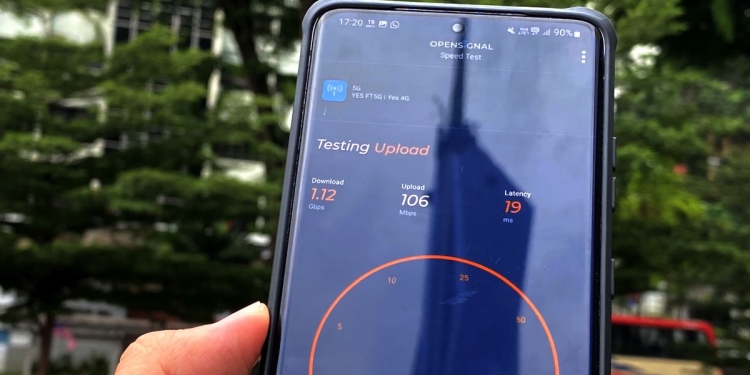Opensignal has just published a report on Malaysia’s 5G experience which highlights user experience improvements over 4G. The analysis is based on data collected between 1st August to 29th October 2022, which is the period before five telcos signed their respective 5G access agreement with Digital Nasional Berhad. Before 31st October, YTL Communications’ Yes 5G is the sole 5G telco in the country.
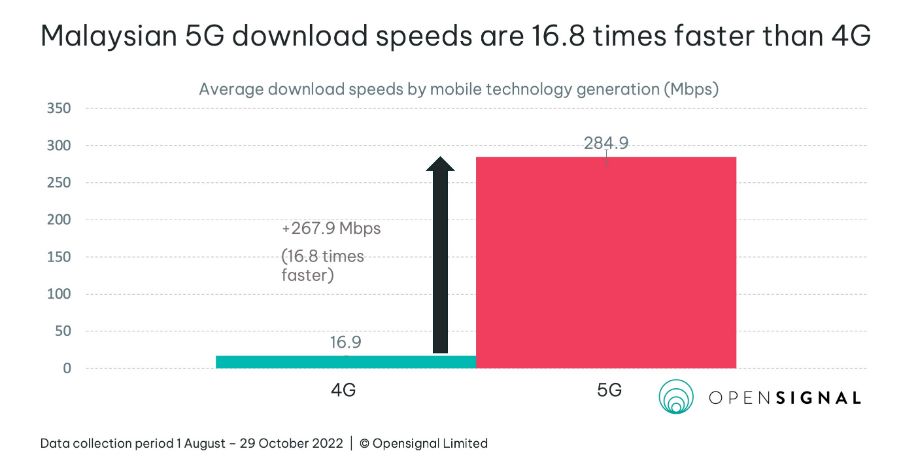
According to Opensignal, Malaysians on 5G are enjoying 16.8 times faster speeds than 4G. Based on their data, Malaysia has an average download speed of 284.9Mbps versus 16.9Mbps on 4G. Compared with our neighbours, Malaysia’s 5G average download speed is 172.2% higher than Thailand which recorded an average download speed of 104.7Mbps. However, Malaysia is 14.3% or 47.7Mbps slower than Singapore’s average download speed of 332.6Mbps.
It is worth noting that Singapore has a higher 5G adoption rate and they have achieved 95% 5G SA (Standalone) coverage in less than two years. Meanwhile, Thailand leads in 5G availability for the region at 24.6% according to Ookla’s report in June 2022.
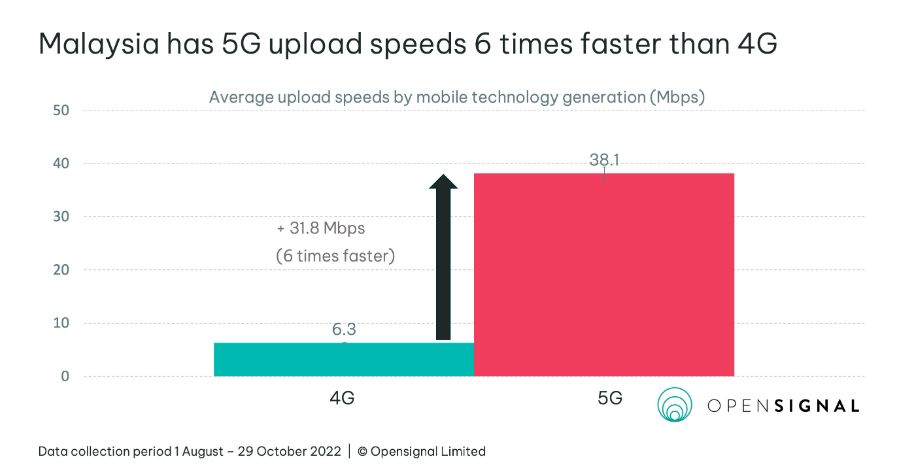
In terms of uploads, Malaysia’s 5G network offers 6 times faster upload speed at 38.1Mbps versus 6.3Mbps on 4G. This is a huge contrast to downloads, as telcos tend to prioritise downlink vs uplink bandwidth. This shouldn’t come as a surprise since the majority of mobile users would be consuming data rather than uploads.
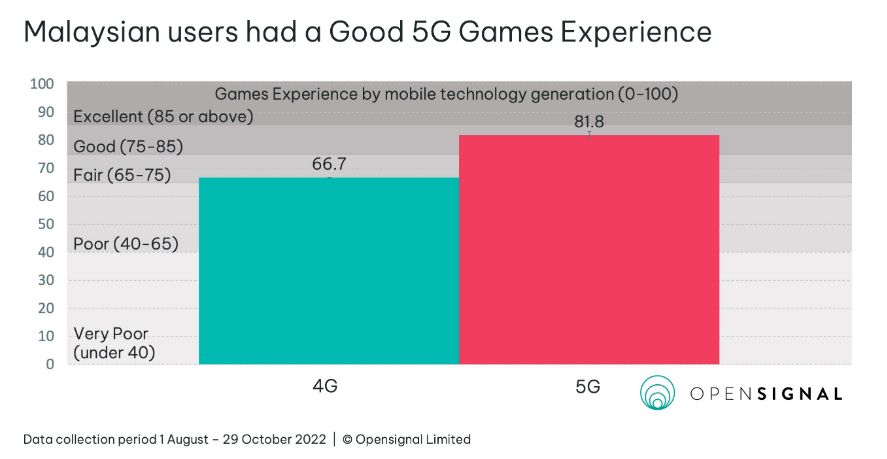
As always, speeds alone don’t tell the full picture. For gaming experience, Opensignal finds that Malaysia’s 5G network offers a “Good” rating for gaming at 81.8 points, which is a step up from the “Fair” rating of 66.7 points on 4G. In Opensignal’s own definition, Good means users found their gaming experience acceptable and did not experience a delay between their actions and the game, while the game felt generally controllable. Meanwhile, Fair means most users did experience a delay and felt less in control of their game.
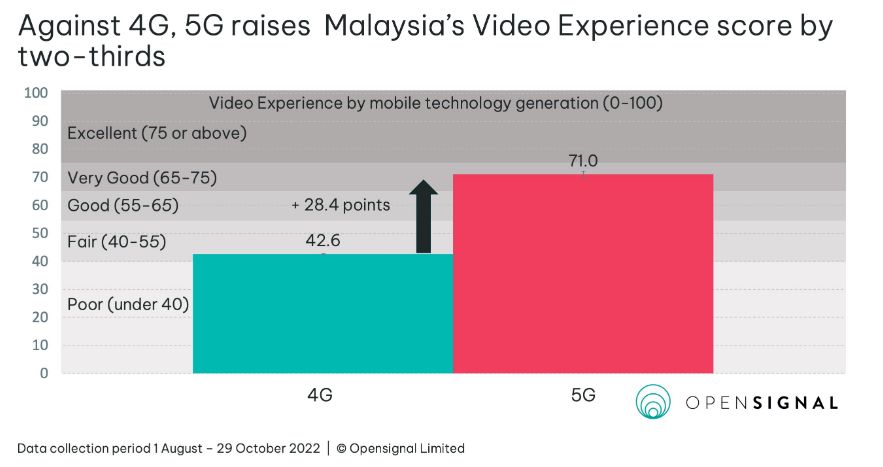
When it comes to video streaming, Malaysia’s 5G gets a “Very Good” rating of 71 points versus a “Fair” rating of 42.6 points. “Very Good” is defined as fast loading times with occasional stalling, but the experience may be inconsistent across users or different providers or resolutions. Meanwhile, “Fair” is defined as users did not have a good experience either for higher resolution videos or for some video streaming providers, but the experience may be sufficient for lower resolution videos.
It is worth highlighting that the real test of the national 5G network is only when more consumers are finally on board as more 5G devices are supported and there’s sufficient coverage in more populated areas. At the moment, 5 telcos such as Celcom, Digi, Unifi Mobile, U Mobile and Yes 5G are offering consumer 5G services but they are mostly limited to selected plans and a handful of devices. Not all 5G Samsung Galaxy devices are supported across all telcos and the iPhone still couldn’t connect to 5G in any Apple partner telco in Malaysia.
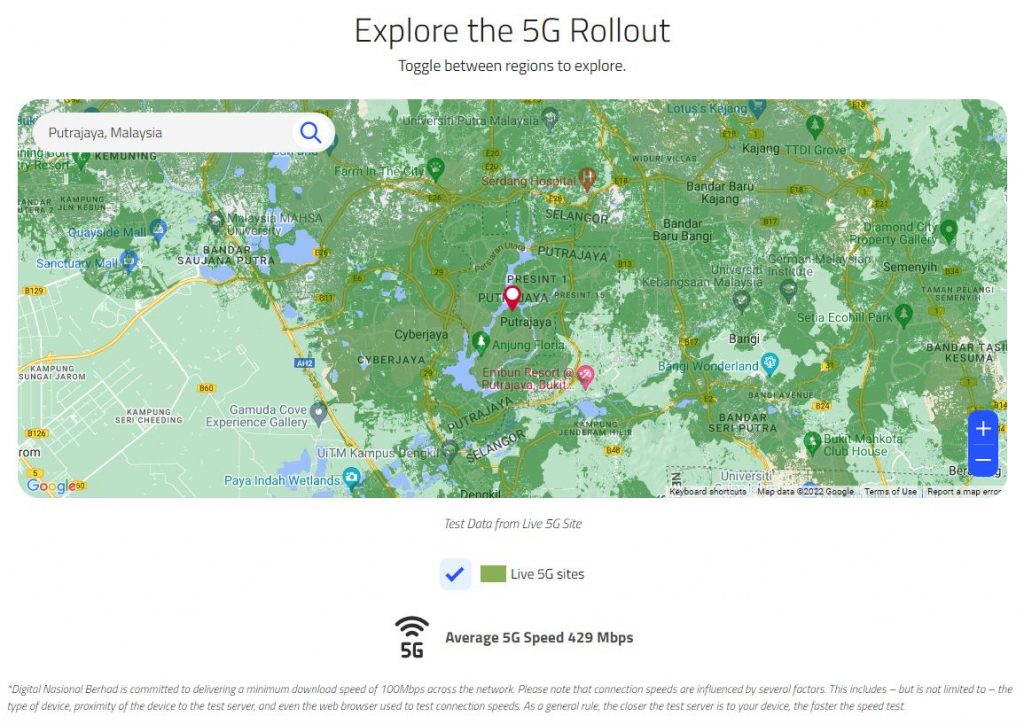
According to DNB’s website, the network currently has an average 5G speed of 429Mbps. It added that they are committed to delivering at least 100Mbps at the weakest point of 5G coverage. The national 5G network claims to have 33.2% 5G population coverage with 1,915 sites as of 30th September 2022. If you’re interested in trying out 5G, you can check out the full list of 5G prepaid and postpaid plans in Malaysia.
[ SOURCE ]
Related reading
- Here are all the 5G postpaid and prepaid plans available in Malaysia
- After derailing 5G in 2020, Saifuddin now claims Malaysia’s 5G rollout is one year ahead of schedule
- BN GE15 Manifesto: Free laptops for B40 students, 5G in all schools within 18 months
- Annuar Musa says 12 million users to get 5G access by end of 2022 after 5 telcos signed up with DNB

